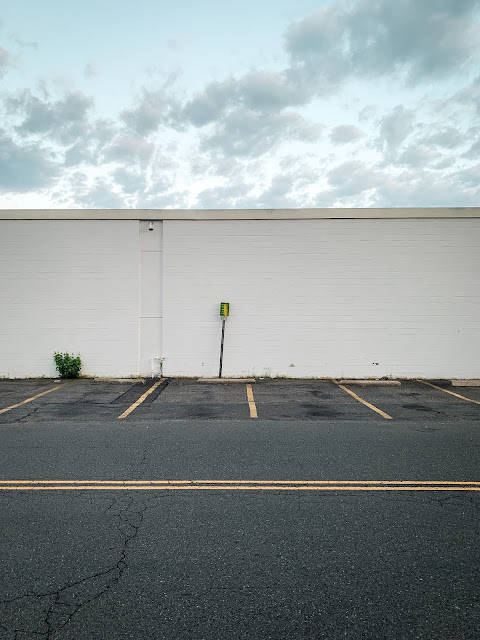(Photo by Chris Mok || @cr.mok on Unsplash)
At the
invitation of the City of Eugene, I participated in a small group discussion last
Thursday regarding the parking reform question. I am by no means an expert on
the topic, but I do consider rethinking how we plan for parking to be a
necessary part of a comprehensive approach to developing climate-friendly
planning and development standards. I share the belief of many that the continued
prioritization of cars over sustainable transportation options is anathema to
the goal of creating a livable, healthy, and environmentally conscious
community. I was happy to learn more and contribute to the discussion.
Everyone
understands the downside of our culture’s car-centric lifestyle. Cars encourage
urban sprawl, leading to fragmented, disconnected, pedestrian-unfriendly
communities. Cars are polluting and dangerous. Ironically, cars limit mobility
for those who cannot afford them or who are unable to drive. To the matter at
hand, cars require a significant amount of real estate merely for the purpose
of storing them. Parking mandates increase the cost of development. On average,
parking adds $142 per month to the cost to rent an apartment, exacerbating the affordability
crisis. A surplus of parking incentivizes driving, even when walking, biking,
or taking the bus are options. Overall, our reliance upon and love for cars and
the need to park them has been detrimental to sustainable, compact development.
The
consensus at my table during the break-out session was that the City should
proceed with Option 1 and simply repeal all parking mandates in their entirety.
Eliminating the off-street minimum parking requirements will not mean
developers cannot build parking. Instead, each project can choose the best use
for their space and budget. That may still include parking, but it could also
be more housing, more commercial space, or more green open space. Most who
build housing would undoubtedly continue to provide some parking, but it would
be based upon what they deem to be truly necessary as opposed to what the City requires.
Importantly, Option 1 would minimize the development of surplus parking capacity
and rely upon the marketplace to dictate what is necessary.
We
were not enthusiastic about either Options 2a or 2b, not only for the added
cost and complexity associated with them, but also because neither is as
conceptually simple as Option 1. Most people would find the specific parking
reforms and regulations they would entail (such as introducing a new tax on
commercial parking lot revenue or requiring that landlords separately charge
for parking associated with existing and new multiunit housing) confusing if
not inequitable.
What I
found enlightening in listening to the others was why some might object to doing
away with minimum parking mandates. The downsides of Option 1 might include
opposition from individual neighborhood associations who would resist the
absence of required minimum off-street parking for new, neighboring developments
and the spillover demand they might cause (this concern could be addressed by
limiting the duration of curbside parking or by issuing resident-only parking
permits). They also might include CC&Rs or HOA parking rules that mandate
provision of minimum numbers of off-street spaces. Banks are also notoriously
conservative and may be disinclined to approve loans for developments that do
not incorporate the number of parking spaces they deem necessary.
Regardless
of whether the City does away with minimum off-street parking requirements, my
table-mates agreed that the parking reforms should continue to include minimum
requirements for accessible parking and bicycle storage. This means providing
accessible parking and bicycle spaces even if the developer otherwise chooses
to not provide off-street vehicular parking.
It’s
worth noting that as of December 31 of last year, the City of Eugene reduced
parking minimums for new residential developments (new residential applications
may require no more than one parking space per dwelling unit), and no
requirements now exist for properties located within a half-mile walking distance
of frequent transit corridors. So, the CFEC mandate and current determination
of which option to pursue applies to revision of the citywide requirements.
The City’s
next steps toward parking reform include soliciting further input from
interested parties and a public survey; you can find the survey here: www.engage.eugene-or.gov/CFEC.
The Eugene Planning Commission will conduct a public hearing on June 27 prior
to submitting its recommendation to the City Council. As I mentioned above, the
City must formally change the Land Use Code no later than December 31 of this
year.
If you’d
like to learn more about Eugene’s Climate-Friendly and Equitable Communities
work or wish to sign up for project updates, click on the link below:
www.eugene-or.gov/5022/Climate-Friendly-Rules
www.eugene-or.gov/5022/Climate-Friendly-Rules


No comments:
Post a Comment